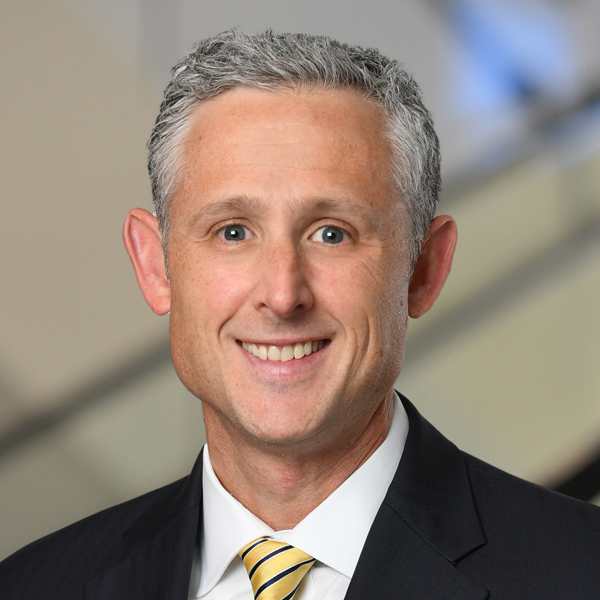In the first known vape combustion case to go to trial in Florida,2 an Alachua County jury awarded plaintiff Michael Hoce more than $2 million against defendant R-L Sales, LLC. Hoce purchased a lithium-ion battery from R-L Sales, which he used in a vape device that he assembled using various component parts. While using the device, the battery combusted, blowing out several of Hoce’s teeth.3 The jury found R-L Sales 100% at fault for the exploding battery and awarded Hoce $47,800 in total medical expenses and $2 million in pain and suffering.4 R-L Sales has appealed the decision to the First District Court of Appeal in Florida.5
This alert analyzes what happened in this case and why the jury verdict was so significant. It also provides recommendations for strategies to employ in the defense of similar cases.
1. The Role of Expert Testimony
Hoce engaged an expert with experience testifying about battery and e-cigarette design and usage. Conversely, the expert R-L Sales engaged had only limited experience with e-cigarettes and batteries. His highest level of education was high school and he had never testified before the Hoce trial.6 His experience was based on his background in repairing vaporizers during a prior business venture, and not on any formal engineering education, training or experience.7
Hoce moved the court to exclude R-L Sales’ expert. While Hoce ultimately withdrew this motion and R-L Sales’ expert was permitted to testify, the parties agreed that the expert would not testify as to the chemistry of the battery or the internal reason for the battery failure.8 At trial, Hoce’s counsel’s cross-examination of R-L Sales’ expert explored his lack of education, training and experience.9 R-L Sales ultimately never presented an expert who could explain the internal failings of the battery.
In cases such as this, we recommend engaging a knowledgeable expert with experience in e-cigarette and battery malfunction investigation. Such an expert can conduct preliminary testing which can often determine the source of the malfunction, potentially resulting in a dismissal of the claims or saving time and money by narrowing topics of discovery. An expert with the proper education, training and experience can also help identify the manufacturer of the product and otherwise shed light on whether there are other potentially responsible parties. At trial such an expert would be less likely to be subject to a challenge to his or her testimony, and would likely have more credibility in the eyes of the jury. Such an expert would also likely be able to explain to the jury why the subject product failed.
2. Hoce Strict Liability Theory
Hoce pursued only a claim for strict liability against R-L Sales, claiming that R-L Sales sold and distributed an unreasonably dangerous and defective battery because (a) it failed to operate as an ordinary consumer would expect, and (b) warnings provided with the battery were inadequate.10
Generally, under a strict liability theory, the seller of an unreasonably dangerous product may be found liable for the product’s defective condition despite the fact that the seller “exercised all possible care in the preparation and sale of [the] product.”11 Because Hoce proceeded on a theory of strict liability only, negligence or carelessness on the part of R-L Sales was not required.
When facing a strict liability claim, defendants should consider early on whether there are third parties that may be potential sources of contribution in the event of an adverse verdict. A defendant may also seek to shift blame to the plaintiff.12 R-L Sales attempted to do this in Hoce, but was unsuccessful, and the jury ultimately concluded that Hoce was not at fault for any portion of his claimed damages.13 It is important to determine what parties may have a relation to the product and if any of those parties could be at fault for the alleged damages.
Strict liability law varies by jurisdiction, and when faced with an e-cigarette claim alleging strict liability, we recommend engaging experienced counsel at the outset of the case. Robust fact investigation, including identifying the product and your relation to it, and exploring alternate possible causes for the alleged malfunction can be crucial to preventing an adverse verdict. In particular, evidence of heavy use, rough handling, or misuse by the plaintiff or other parties in the chain of distribution should be investigated.
3. The Specifics of the Hoce Case
A number of factors specific to the Hoce case may have contributed to the verdict, including the jurisdiction (Florida) in which the case proceeded. Of particular relevance to a potential defendant in e-cigarette litigation, the Florida Supreme Court has previously rejected the heightened Daubert standard that regulates the admission of expert testimony.14 Thus, Florida courts may be more inclined to allow the admission of expert testimony put on by plaintiffs than courts in other jurisdictions.
The particular circumstances of a plaintiff’s allegations are often important to how the claim will be defended and how a jury may perceive the damages. The plaintiff in the Hoce case suffered significant injuries, including the loss of several teeth, and needed dental reconstruction procedures and alleged permanent and life altering disfigurement.15
When faced with injuries such as these, one should consider alternative causes for such injuries, such as pre-existing medical conditions. In Hoce, R-L Sales attempted to do this by pointing to the alleged pre-existing tooth decay of Hoce, which R-L Sales claimed was caused by prior drug use. The court, however, prohibited R-L Sales from introducing this evidence, finding it prejudicial and concluding that the “cause of the Defendant’s [tooth] decay” was irrelevant.16
Another important consideration, as evidenced by the verdict in this case, is that an award for pain and suffering can be larger than a plaintiff’s medical expenses. Thus, it is important to consider the best way to refute a plaintiff’s claim for a large pain and suffering award, potentially by proposing a lower amount as an alternative. In Hoce, R-L Sales did not propose an alternative damages amount at trial, so the jury heard only the figure proposed by Hoce.17 In response to R-L Sales’ post-trial motions, including a motion for a new trial, Hoce pointed to this fact, arguing that the $2 million pain and suffering award that the jury returned was proper because R-L Sales failed to propose any other damages amount at trial aside from the one offered by Hoce.18
Understanding the Hoce case can assist all parties in the e-cig and vape chain of distribution develop strategies to limit or potentially avoid liability in similar cases.




